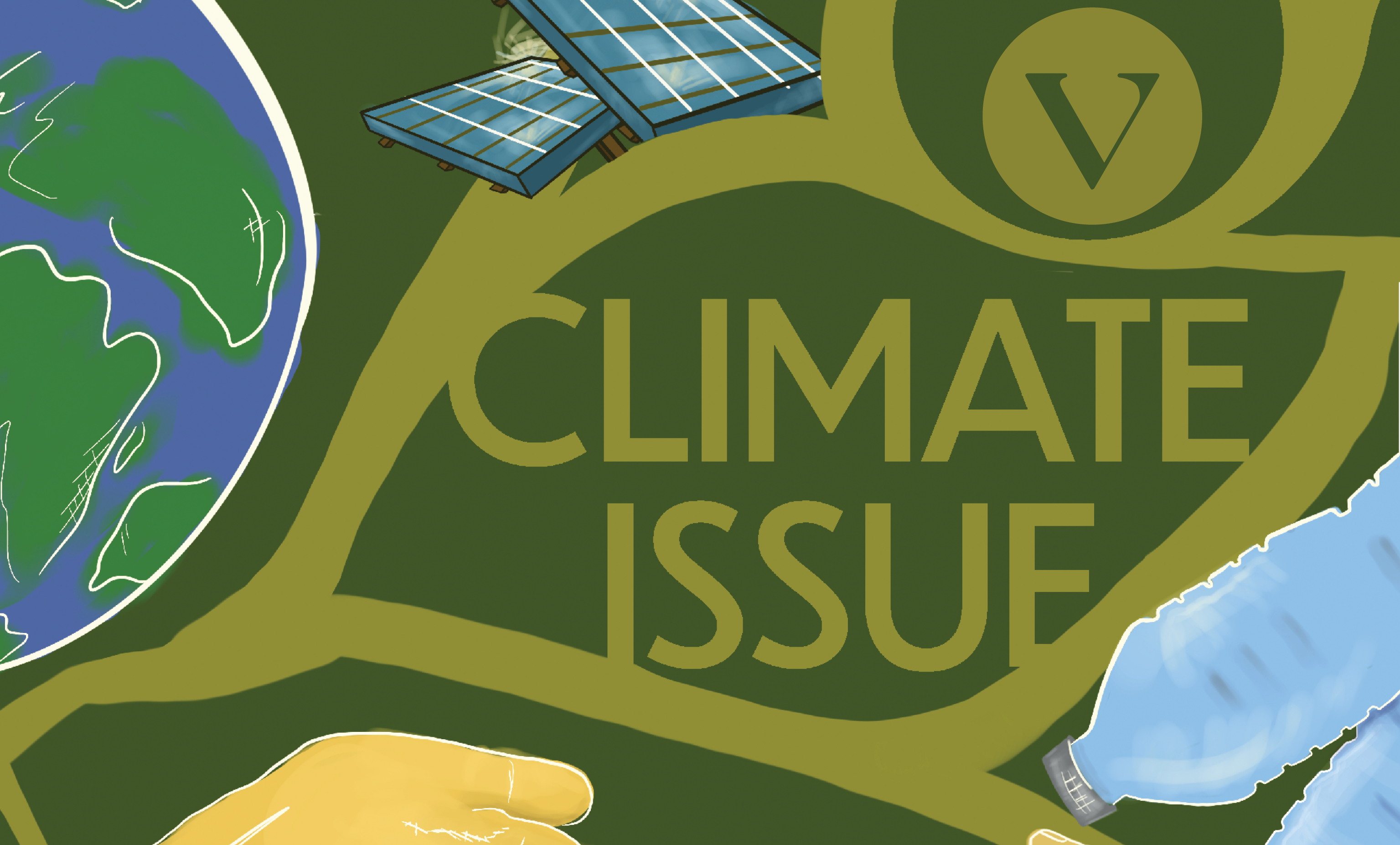Welcome to The Varsity’s Climate Issue!
On October 27, two days after this issue hits stands, the University of Toronto Asset Management Corporation is scheduled to complete its divestment from direct holdings in fossil fuels. The university committed to this step one year ago.
Ahead of The Varsity’s follow-up on the university’s divestment progress, which we hope to release soon, our editors have brought together a wide array of stories on the climate crisis from different corners of U of T. This effort is part of an ongoing coverage commitment at The Varsity.
The Varsity has been reporting on the climate crisis since at least 1957, when we published a professor’s statement that the “Polar Sea” could become ice-free in a lifetime due to global warming from carbon emissions. But coverage was sparse for decades. Only in the last few years has The Varsity consistently made covering the climate crisis one of its key focuses.
In September 2019, ahead of a UN Climate Action Summit in New York City, our Volume 140 masthead joined over 250 other media organizations in a worldwide initiative called “Covering Climate Now.” The initiative, coordinated by the Columbia Journalism Review and The Nation, involved publishing a week’s worth of content on climate change, in order to highlight the severity of the crisis while exploring possible solutions. In an editorial pledging our commitment, The Varsity’s editorial board at the time wrote, “we hope that the Covering Climate Now initiative will inspire our editors and contributors this year, and for years to come.”
It has. Since that commitment, The Varsity’s writers and editors have heightened their attention to the climate crisis. We’ve tracked the divestment movement at U of T, including the university’s recent commitment to divest, while reporting on similar demands for divestment from federated colleges. We’ve published several op-eds and open letters, some of which call upon students to mobilize for Indigenous land rights or demand that the university take more ambitious action. Our reporters and photojournalists covered several iterations of the Global Climate Strike in Toronto, as well as last winter’s Wet’suwet’en solidarity protest. In 2020, our editorial board spoke out in support of the Wet’suwet’en land defenders.
We don’t want to lose that momentum. After all, experts consider the climate crisis the greatest threat our world has ever faced. The release of this climate special issue marks an affirmation of our 2019 commitment: we pledge to continue treating the climate crisis with the urgency and focus it deserves. We also pledge to sustain critical discussions about the university’s response to the crisis, and keep our institutions accountable for their role in the search for climate solutions.
We hope you’ll hold us to that.


